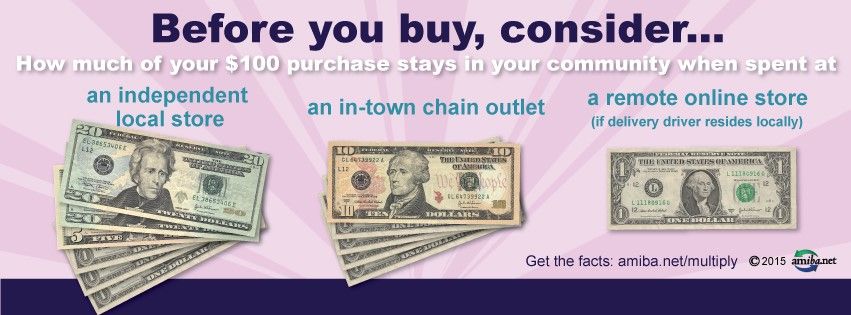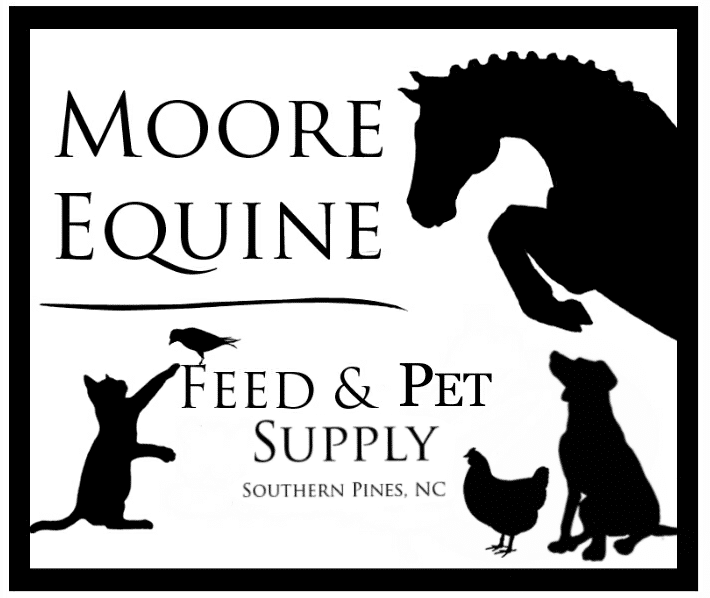This week is National Small Business Week - How many of you knew that? We've all seen the "Support Local" campaigns in one form or another for a while now. But do we really understand what it means and the implications it has for our community? Do we really take seriously the necessity to actively seek out and support local businesses to ensure the uniqueness and character of our town is guaranteed to continue to exist? Here is the reality - growing large companies and internet sales are putting the squeeze on many local businesses, here and across the nation. The very fabric of what makes our town so appealing may be lost if we do not support it. In Southern Pines we are very fortunate to have a wide variety of small businesses that work tirelessly to bring you not only the best customer service and shopping experience possible, and also put an immense amount of time, energy and dollars back into our local community. Large online entities that are not based in your local community such as Amazon, Chewy or Jet do not. Local businesses pay property tax, pay for our schools and small businesses donate more than twice as much per sales dollar to local non-profits, events, and teams compared to big businesses.(1) Did you know? Each dollar you spend at local independent businesses returns 3 times more money to your local economy than one spent at a chain and almost 50 times more than buying from an online mega-retailer. While many online retailers now collect State sales tax, if they do not have a physical store in a city, town or county they are not required to pay sales tax to them. The only positive effect that they have locally, is to employ more delivery people at UPS, FedEx and the USPS. The profit, salaries and the taxes get sucked out of our community and away to distant states and cities.
It is important to consider the community impact when choosing how you make your purchases
"Local" comes in various forms:
1. Locally Owned and Located Store or Restaurant - profits, taxes, salaries and much of their material costs all go back to the community. This includes our little block of locals - Moore Equine Feed & Pet Supply, Ashten's A'Field and May Street Bicycle Shop, as well as most all of our shops downtown on Broad Street and the surrounding area.
2. A business that has a physical location in our community but is owned by an out of State entity - These businesses employ locals, pay property taxes and sometimes give back to our community. Examples include Panera, Aldi, Rite-Aid, etcetera
Businesses that have no physical location here have no local employees, no local suppliers, pay no county property taxes and do not give back to our community. Every dollar of what you spend with them, with the exception of wages paid to delivery people, will leave our community. These are largely the online companies that are affecting our local businesses so deeply.
Online shopping is attractive because it's convenient and the variety of items available at the click of a button is virtually unlimited. Admittedly, even I, an independent small business owner, do from time to time click that mouse button (Gasp!) albeit with at twinge of guilt. I get that it's not realistic to totally abandon online shopping. However, it is imperative that we all stop and think a bit more when making our shopping decisions. It is in our own best interest to increase our focus on local purchases.
What can we do to prevent this from getting worse?
First and foremost, find out whether or not what you want is locally available. Often, our local stores have what we want, we just don't realize they've taken and made the effort to source it out for us!
Let our local businesses know what products you utilize that aren't available locally. As a small business our job is to make your life easier. If you come in looking for something and we don't have it, ask. We are happy to special order and/or are always looking for new products to serve our customers better. Chances are, if you love a product and are loyal to using it, someone else locally is too, and having what our customers need when they need it is what small business is all about! Give local businesses a fair chance. The common belief that "everything is cheaper online" is often a fallacy. In a price comparison, often times you will find that local businesses are very competitive and sometimes even priced lower than online purchases. Believe it or not, we know the internet is out there and we keep tabs on things. We aren't here to gouge you, we are here to provide a service and build a community. We constantly strive to offer you value in your purchases, not only in product, price and availability but in the knowledgeable advice that comes from extensive training and often from our numerous furry family members and our experiences.
Take into consideration the value added benefits of shopping local. When you support local businesses you not only enjoy a more unique and personal experience, you build relationships and community cohesiveness(2), strengthen your local economy(3), create a healthier environment(4) (more on this topic here) and have higher overall customer satisfaction level.(5)
And last but not least, to borrow from a popular past TV show theme song ..."Sometimes you want to go where everybody knows your name, and they’re always glad you came;.." Cheers! everyone. Here's to keeping our lovely, lively community intact and thriving.
Kim
1. In a study for the Small Business Administration, Business Contributions to Community Service (1991), Dr. Patricia Frishkoff of Oregon State University analyzed charitable giving by firm size. She found companies with fewer than 100 employees gave an average of $789 per employee in cash and in-kind donations, compared to $334 per employee at firms with more than 500 employees.
2 “Scale of Agriculture Production, Civic Engagement, and Community Welfare” by T Lyson and R. Torres, Oxford Journals, 2001. “The Configuration of Local Economic Power and Civic Participation in the Global Economy” by T. Blanchard and T. Matthews, Project Muse, 2006.
3 “The Multiplier Effect of Local Independent Business Ownership” provides an overview of the topic. The consulting firm Civic Economics has executed multiplier studies for many communities.
4 “Neighborhood stores: An overlooked strategy for fighting global warming” by Stacy Mitchell, Grist.
5 Reader surveys by the Consumers Union repeatedly show independent businesses beating their chain competitors in overall customer satisfaction (and often save you money). Content Source: https://www.amiba.net/resources/localhero/

